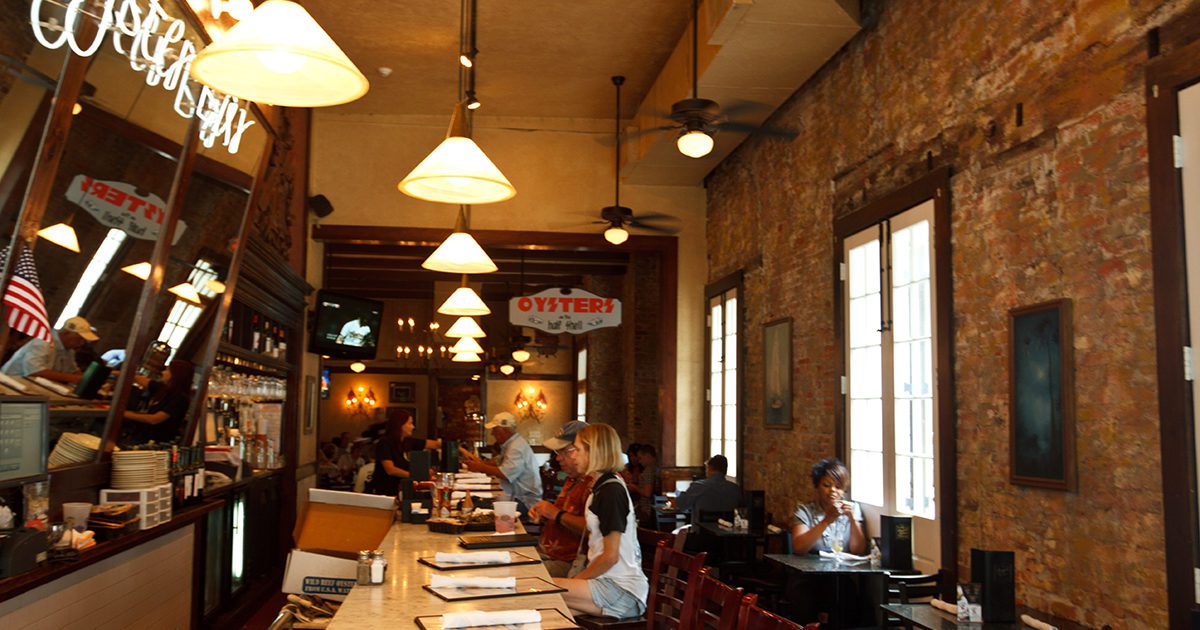Oceana Grill, a popular tourist-centric restaurant in New Orleans, has won the country’s first victory in appellate court for an insured business seeking damages related to COVID-19 shutdown losses.
The Bourbon St. restaurant originally lost their request to seek damages from its insurer, but that decision has now been reversed on appeal.
“A split Louisiana court found the policy’s definition of “direct physical loss or damage” ambiguous, ruling in favor of the restaurant on Wednesday, June 15,” Eater reports.
Yuge!! Court rules restaurant can seek damages for Covid 19 shut downs.
Good time to short insurance companies 📉📉📉https://t.co/gYqCzEhrH5
— 🍊P⬛️⬛️t B⬛️⬛️⬛️⬛️d🍊 (@BastadPhat) June 19, 2022
From Eater:
Cajun Conti, the company that owns Oceana Grill, among other French Quarter tourist haunts, sued Lloyd’s of London on March 20, 2020 — the same day the restaurant shut down — seeking coverage for losses incurred while Louisiana’s restaurant dining rooms were closed due to the pandemic. A lower court previously denied Cajun Conti’s request to seek damages from its insurer, but the decision this week reversed that decision on appeal, ruling 3-2 that Lloyd’s owed coverage under its policy — because it can be interpreted as ambiguous.
Oceana Grill’s parent company was one of the first, if not the first, to file a COVID insurance coverage lawsuit, though many more followed. The general consensus was that the pandemic wouldn’t qualify for business interruption assistance, as it was created to cover closures due to property damage from natural disasters. This court, however, found that the wording is open to interpretation and that physical damage did not have to be “obvious and observable.”
“The physical presence of COVID-19 substantially diminished the usable space of the property, as tables needed to be pushed farther apart, and resulted in economic losses due to the slowdown of the appellants’ business,” Chief Judge Terri Love wrote in the ruling.
Cajun Conti argued that COVID-19 had caused property damage by forcing it to close — and eventually reduce the amount of seating in the establishment to comply with social distancing rules.
“It’s the first appellate win for an insured business according to a database at University of Pennsylvania Carey Law School,” Reuters noted.
One of the policyholder attorneys involved said the “dam has broken” with the ruling, paving the way for other businesses to do the same.
Reuters added:
In an email Thursday, Lloyd’s attorney Virginia (Ginger) Dodd of Phelps Dunbar said the ruling was inconsistent with “ten federal circuit courts of appeal and every other state appellate court” to address the issue. “We will pursue all options to address what we believe to be an outlier decision,” Dodd said.
Oceana’s lead lawyer, John Houghtaling of Gauthier, Murphy & Houghtaling, said in an interview Thursday that the decision will “dramatically change the way federal courts have treated these cases.” In particular, judges should stop barring evidence about the industry’s development and widespread use of a standard virus exclusion, which he said proves that insurers consider contamination to be “physical loss or damage.”
In a footnote, the Louisiana appeals court acknowledged that such evidence is generally inadmissible to establish coverage, but may be evidence of the parties’ intent once an ambiguity is found.
The appeals court did not order Lloyd’s to pay a specific amount to Oceana. Houghtaling declined to say how much the restaurant is seeking.
While Wednesday’s appellate decision is the first to find coverage for COVID-19 income losses under an all-risk property insurance policy, a state appellate court in New York on Monday affirmed a Bronx judge’s ruling that allowed the New York Botanical Garden to sue its Pollution Liability Insurer, Allied World Assurance, for denying its COVID-related loss of business income claim and for breach of the implied covenant of good faith and fair dealing.



Join the conversation!
Please share your thoughts about this article below. We value your opinions, and would love to see you add to the discussion!